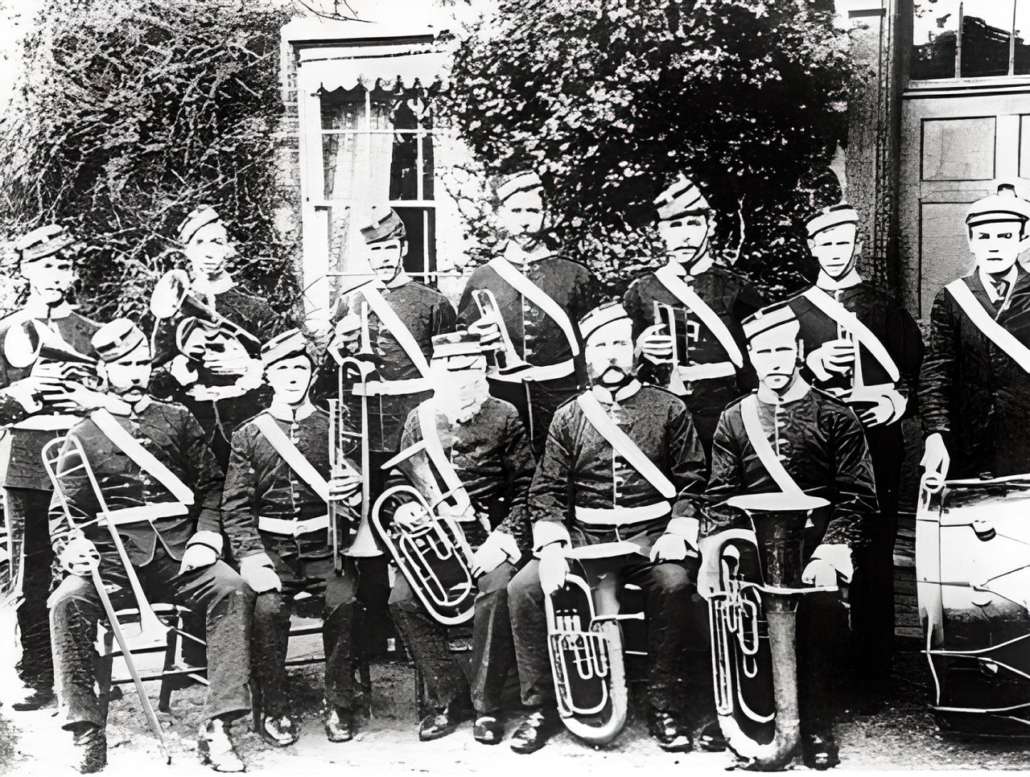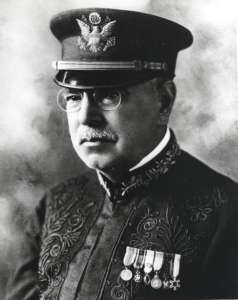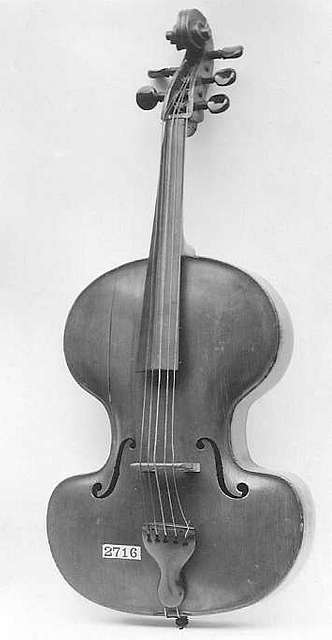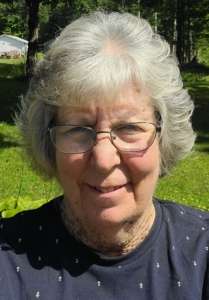Up and down the Kennebec Valley: Music in the Kennebec Valley – Part 3
/0 Comments/in Augusta, Central ME, China, Kennebec County, Local History, Oakland, Up and Down the Kennebec Valley, Vassalboro/by Mary Growby Mary Grow
Band music
Another type of music in the central Kennebec Valley from early days of European settlement was band music. It was often, but especially in later years not inevitably, associated with military organizations; and like other forms of music, got limited attention in most local histories.
* * * * * *
James North, in his Augusta history, sometimes mentioned parade music, presumably provided by a band, as in his description of former president George Washington’s funeral procession in Augusta on Feb. 22, 1800.
North wrote that the procession was headed by a military escort. It included an infantry company, followed by musicians with “drums muffled, instruments in mourning,” followed by an artillery company.
By 1805, North wrote, Augusta had two military companies, and a group of young men persuaded the legislature (still in 1805 the Massachusetts General Court) to authorize a light infantry company.
The Augusta Light Infantry, which appears frequently in North’s history, was organized in the spring of 1806. North listed its officers and its musicians: fifer Stephen Jewett (the same Stephen Jewett who played the bass viol in church beginning in 1802? – see the July 27 issue of The Town Line) and drummer Lorain Judkins.
Some of the women connected with infantry members created and presented a company standard, with the motto “Victory or Death.” North described the Sept. 11, 1806, presentation as followed by a parade and a ball (presumably at least the ball and probably the parade included musicians).
By the time the Light Infantry was part of the local Federalist party’s July 4 parade in 1810, there was definitely a band. North wrote that its members politely stopped playing as the parade passed the house where Judge Nathan Weston was addressing the rival Democratic party celebration.
Another association between music and the military is the lists of men who fought in the War of 1812. Kennebec County historian Henry Kingsbury and many local historians listed soldiers (in 1812 and later wars) by name and rank, including musicians.
Most 1812 companies had either two or three musicians, though Kingsbury listed only one apiece for two of Vassalboro’s companies. The majority are described unspecifically as “musicians,” but Kingsbury mentioned a drum major and a fife major from Augusta.
By July 4, 1832, North again described two separate parades by two political parties, with multiple bands and military units. The National Republicans’ parade included “the Hallowell Artillery and Sidney Rifles, each with a band of music,” and the Hallowell and Augusta band, which he said was “one of the best in the State.” The Democrats’ parade included some of the Augusta Light Infantry and a band from Waterville.
There was an Augusta band in 1854, when Augusta city officials (the town became a city in 1849) decided the annual July 4 celebration should include recognition of the 100th anniversary of the building of Fort Western. Events included an extremely elaborate parade, with the Augusta Band providing the music.
And on April 18, 1861, as the Civil War began, North wrote that “the Augusta Band, playing patriotic airs” (including Yankee Doodle), led Augusta’s Pacific Fire Engine Company as members marched to the homes of leading citizens to ask their reactions to the rebellion.
(Their visits started with Governor Israel Washburn, Jr., and included his predecessor, former Governor Lot M. Morrill. North commented that Republicans and Democrats alike expressed support for the federal government.)
By August 1863, either there was another band or the Augusta Band had a second name. North described the return of two volunteer regiments whose members’ nine-months enlistments were up.
The 24th Regiment got to Augusta at 10:30 p.m. Aug. 6, by train; a large number of dignitaries and ordinary citizens and the Citizens’ Band escorted the soldiers to the State House for a welcome and a banquet (after which they slept on the State House floor, too exhausted to continue to Camp Keyes). The 28th arrived around noon Aug. 18; their welcoming parade included the Citizens’ Band and the Gardiner Brass Band, and their refreshments were served on the lawn south of the State House.
In 1864, according to North, it was the Augusta Band that on June 3 escorted the first trainload of wounded men to the new military hospital at Camp Keyes, in Augusta.
* * * * * *
In the village of Weeks Mills, in the southern part of the town of China, there was in the latter half of the 19th century an all-male brass band that the China history says “was more a marching band than a dance band,” because its concerts were mostly outdoors.
Sometimes there were concerts in “a town public hall” that was the second floor of a building on the east side of the Sheepscot, north of Main Street (which is called Tyler Road on the contemporary Google map). There was also a bandstand, “with a flagpole,” that band members built at the junction of North Road (now Dirigo Road, perhaps?).
Quoting a former resident named Eleon Shuman, some of whose family were in the band, the history adds, “Few of the band members could read music, and the band director transcribed their pieces into a simpler notation called the tonic sol fa method which they could follow.”
Oakland also had a town band by the late 1880s. In her history of Sidney, Alice Hammond wrote that the organizers of the 1890 Sidney fair spent most of their money to hire the Oakland Band.
She explained that in the absence of television and Walkmans (never mind smartphones), “To hear the band playing as you strolled around the fair grounds, or went into the hall and sat down to take a break was a treat.”
There were also dances some afternoons – “Anyone who wished to dance paid for one dance at a time.” In 1890, the fair was not lighted, so there was no evening music or dancing.
Hammond’s history included reproductions of two posters.
One advertised a Feb. 5, 1892, exhibition of “The marvels of the modern phonograph,” which would “Talk, Laugh, Sing, Whistle, Play on all sorts Instruments including Full Brass Band.” After Professor R. B. Capen, of Augusta, finished his demonstration, there would be a Grand Ball, with music by Dennis’ Orchestra, Augusta, for dancing until 2 a.m.
The second poster announced an Aug. 15, 1898, Grand Concert by the Sidney Minstrels. The program included vocal and instrumental (guitar, banjo and tamborine solos); it was followed by a “social dance” with music by Crowell’s Orchestra.
John Philip Sousa’s inaugural playing of The Stars and Stripes Forever, in Augusta
An on-line site called Military Music says John Philip Sousa’s The Stars and Stripes Forever was played for the very first time by Sousa’s Band in the new (opened in 1896) city hall, in Augusta, Maine, on May 1, 1897. Because at that time the march had no title, some historians inaccurately date the first performance to a May 14 concert in Philadelphia.
Contributor Jack Kopstein wrote that Sousa composed the march as he was returning from Europe late in 1896. His original version called for “Piccolo in D-flat, Two Oboes, Two Bassoons, Clarinet in E-flat, Two Clarinets in B-flat (1-2), Alto saxophone, Tenor Saxophone, Baritone Saxophone, Three Cornets (1-3), 4 Horns in E-flat (1-4), Three Trombones (1-3), Euphonium, Tuba, Percussion.”
Augusta’s Museum in the Streets (on line) says by May 1, 1897, Sousa’s Band was “the most famous in the land,” and Sousa was “America’s ‘March King.'” The afternoon concert presented some of his earlier compositions; “Sousa’s band enthralled the Augusta audience with spirited music, and his first encore was a new untitled march” – the one that became The Stars and Stripes Forever.
On-line sites give different versions of the words for the march. The one attributed to Sousa begins, “Let martial note in triumph float / And liberty extend its mighty hand….”
Your writer’s personal favorite begins “Be kind to your web-footed friends / For a duck may be somebody’s mother.” (The web attributes these words to radio comedian Fred Allen [1894-1956].)
Augusta’s 1896 city hall was designed by John Calvin Spofford (Nov. 25, 1854 – Aug. 19, 1936), a Maine-born, Boston-based architect well-known for designing public buildings in New England. In addition to municipal offices, the building included a city auditorium.
Kopstein, writing in 2011, said the building served its municipal function until 1987; it then became an assisted living facility. An on-line description of the Inn at City Hall says it now has “31 apartments with its historic decor preserved throughout the complex.”
Main sources
Grow, Mary M., China Maine Bicentennial History including 1984 revisions (1984)
Hammond, Alice, History of Sidney Maine 1792-1992 (1992)
Kingsbury, Henry D., ed., Illustrated History of Kennebec County Maine 1625-1892 (1892)
North, James W., The History of Augusta (1870)
Websites, miscellaneous.
EVENTS: VCS annual school supplies drive
/0 Comments/in Community, Events, Vassalboro/by Website Editor Help the students at Vassalboro Community School by donating to the 5th annual school supplies drive by drop off, on Saturday, August 19, from 10 a.m. – 1 p.m., at the North Vassalboro Fire Station, on Rte. 32. Supplies may be dropped off at the Maine Savings Federal Credit Union, on Main Street, in Vassalboro, or the Vassalboro Town Office, on Main Street, if people want to donate and drop off prior to the actual event on August 19. FMI, contact Don Breton at 313-3505, or dlbreton@roadrunner.com.
Help the students at Vassalboro Community School by donating to the 5th annual school supplies drive by drop off, on Saturday, August 19, from 10 a.m. – 1 p.m., at the North Vassalboro Fire Station, on Rte. 32. Supplies may be dropped off at the Maine Savings Federal Credit Union, on Main Street, in Vassalboro, or the Vassalboro Town Office, on Main Street, if people want to donate and drop off prior to the actual event on August 19. FMI, contact Don Breton at 313-3505, or dlbreton@roadrunner.com.
Vassalboro planners deny resident permit to expand year-round home
/0 Comments/in News, Vassalboro/by Mary Grow by Mary Grow
by Mary Grow
By their Aug. 1 meeting, Vassalboro Planning Board members had much more information on the application they postponed at their July meeting, from town records and from the applicant.
Peter Tomasz applied for an addition to his year-round home on Three Mile Pond. After discussion, board members unanimously denied his application, because they found the project failed to meet two requirements of the town’s shoreland zoning ordinance.
The house is about 20 feet from the high-water mark, within the current 25-foot setback. Such a non-conforming building is “grandfathered” and can continue to be used, but with limits. One is that it cannot be expanded more than 30 percent from its footprint in 1989; another is that no additions are allowed less than 25 feet from the high-water mark.
Board member and former codes officer Paul Mitnik had found a 1983 tax card (specific 1989 information is not always readily available, he commented). After discussion of when additions had already been made and much calculation of percentages, board members determined that the addition Tomasz designed would add more than 30 percent and therefore is not allowed.
They also found that part of the addition would be inside the 25-foot water setback; that, too, is not allowed.
Tomasz said a smaller addition was a lesser problem than moving farther from the water, which would make connecting the addition to the existing house difficult. When he left the meeting, he intended to see if he could develop a revised plan and submit a new application.
Board members had no other business. Their next regular meeting night is Tuesday, Sept. 5.
Mitnik said Vassalboro codes officer Robert Geaghan has submitted his resignation, effective in October. Geaghan was on vacation Aug. 1; Mitnik expects he will be at the September and October planning board meetings.
Up and down the Kennebec Valley: Music in the central Kennebec Valley
/0 Comments/in Augusta, Central ME, Hallowell, Kennebec County, Local History, Up and Down the Kennebec Valley, Vassalboro/by Mary Growby Mary Grow
After the frustration of finding only scanty and random information from local historians on how central Kennebec Valley residents cared for their destitute neighbors, your writer decided to continue frustrating herself on a more cheerful topic: music.
There were music and musicians in central Maine before the Europeans’ arrival. Music historian George Thornton Edwards provided a bit of information on native American music in his Music and Musicians of Maine.
The early European settlers, too, enjoyed and appreciated music, Edwards wrote. At first it was mostly sacred and mostly vocal.
The usual accompaniment to a church choir was a bass viol. Portland’s Second Parish Church seems to have been a leader in expanding use of instruments. Edwards wrote that the cornet and clarinet (or clarionet) had supplemented the viol before 1798, when the church acquired the first church organ in the city.
Augusta wasn’t far behind. In 1802, according to Edwards and to James North’s Augusta history, residents of the North Parish raised $35 to buy a bass viol and build a box for it. Stephen Jewett played the viol; Edwards commented that “ultra conservative” residents no doubt disapproved.
North included a reference from 1796, when Hallowell Academy, opened May 5, 1795, celebrated the end of its first year with public student recitations. North quoted from the May 10, 1796, issue of the Tocsin (Hallowell’s second newspaper): the public presentation included “vocal and instrumental music, under the direction of Mr. Belcher the ‘Handel‘ of Maine.”
(“Mr. Belcher” was Supply Belcher [March 29, 1751 – June 9, 1836]. Born in Massachusetts, he fought in the Revolution; moved to Hallowell in 1785; and in 1791 settled in Farmington for the rest of his life. He published in 1794 a collection of his sacred compositions called The Harmony of Maine.)
North borrowed from Edwards’ history a description of another series of musical events that started in early 1822, when a group of musically-inclined South Parish Congregational Church parishioners brought to the town “Mr. Holland,” a professor of music from New Bedford, Massachusetts. (Your writer has failed to find Mr. Holland’s first name or dates.)
Holland began a new method of teaching “psalmody” (the singing of sacred music, especially in church services) and gave piano lessons. His singers joined the church choir, and the ensuing interest led to raising money to buy a $550 British-made organ, the first organ in Augusta. It was installed on Sept. 4, North said.
The next Sunday, “Mrs. Ostinelli,” Sophia Henrietta Emma Hewitt Ostinelli (May 23, 1799 – Aug. 31, 1845), played the organ. She was the daughter of Boston composer, conductor and music publisher James Hewitt, and the new wife of Italian-born violinist and conductor Paul Louis Antonio Ostinelli (1795 – 184?). An on-line source calls her “pianist, organist, singer, and music teacher.”
Edwards wrote that her husband was described as a violinist “without a peer in America at that time.” He was also an orchestra conductor.
On Sept. 19 and again on Sept. 25, Holland directed “an oratorio of sacred music,” held, Linda Davenport wrote in her Divine Song on the Northeast Frontier, at the church. The concerts were benefits, the first for Holland and the second for the Ostinellis.
Music was provided by church members – the church did not seem to have its own “ongoing musical society,” Davenport wrote – plus choir members from Hallowell’s Congregational and Baptist societies. At one of these concerts, maybe both, Ostinelli played violin solos.
Davenport reprinted the program of the Sept. 19 concert. Each of the two parts began with an organ voluntary, followed by vocal music, both chorus and solo. Seven of the 15 pieces performed were by George Frideric Handel; one was by Franz Joseph Haydn.
North wrote the Holland concerts were the last time such “first class concerts” were presented in Augusta until June 1859, when Ostinelli’s daughter Elise, Madame Biscaccianti, sang.
Holland moved back to New Bedford in September 1823, Edwards wrote. “It is said that his influence on the musical life in Augusta is felt to this day (1928).”
The same year Cyril Searle was “temporarily located in Augusta and he continued the excellent work which had been started by Mr. Holland.”
North devoted three pages to Searle – not to his musical career, but to a description of the sketch he did of Augusta, probably in 1823 (definitely after Maine and Massachusetts separated in 1820, and before a building he included burned on Nov. 8, 1823).
When Augusta’s first Unitarian church, called Bethlehem Church, was built in 1827, it had an organ, North wrote. This church, according to Henry Kingsbury’s Kennebec County history, was on the east bank of the Kennebec, where the Cony Flatiron Building (formerly Cony High School) stands today. Since most of the Augusta Unitarians lived on the west side of the river, a new church was built only six years later on State Street, about a block north of the present Lithgow Library.
In later descriptions of new church buildings, North occasionally mentioned an organ; apparently by the 1830s, they were common enough not to be worth noting.
An event he described that will remind readers of the old saying, “The more things change, the more they stay the same,” and in which music played a minor role, occurred in 1832.
By then Maine’s capital had moved to Augusta. The legislature, meeting in secret session, discussed a controversial proposal to cede land to Great Britain to resolve the conflict over the Maine-Canada boundary (a conflict that led to the Aroostook War of 1839 – see the March 17, 2022, issue of The Town Line).
An anonymous source sent information on the secret deliberations to Luther Severance, publisher of an Augusta newspaper, who printed it. Legislators demanded to know the source. Severance refused to answer committee questions and was threatened with a contempt citation, but was apparently never prosecuted.
Enough of Augusta’s elite sympathized with Severance to organize a dinner in his honor, at which speakers denounced legislators, praised the free press and, North quoted from Severance’s newspaper, enjoyed “an excellent dinner, moistened with the best old Madeira, and accompanied by fine music.”
* * * * * *
There were also privately run singing schools, Edwards wrote. Millard Howard wrote in his Palermo history that schoolhouses were one place singing schools met. He added that by the late 1800s, schoolhouses were also sites for “some rowdy dances with frequent fights.”
Edwards’ history includes names of people, mostly men but some women, who ran singing schools. One was Coker Marble, whose singing school in Vassalboro operated for more than 20 years in the period from 1836 through 1856.
An on-line Marble genealogy provides limited information on not one but two men named Coker Marble. The genealogy starts with Samuel Marble (Oct. 23, 1728 -?) and Sarah Coker (June 21, 1735 -?), who married in 1754 in New Hampshire. They had at least three children: Hannah and John, both born in 1755, and Coker Marble Sr. (Sept. 28, 1765 – Aug. 30, 1823).
Coker Marble Sr., married twice, according to the on-line genealogy. He and his first wife, Polly Mason, whom he married about 1796, had at least one daughter.
On Jan. 1, 1801, in New Hampshire, he married Rhoda Judkins (1776 -1864). The oldest of their six children was Coker Marble Jr. (Feb. 8, 1802 – Sept. 10, 1882), who was born in Vassalboro.
In his chapter on Vassalboro in the Kennebec County history, Kingsbury named Rev. Coker Marble as pastor – presumably the first pastor – of the Second Baptist Church, organized at Cross Hill in 1808 with 37 members but, Kingsbury said, “probably…no church property.” From the dates in the genealogical information, this pastor must have been the senior Coker Marble, who would have been in his mid-40s in 1808.
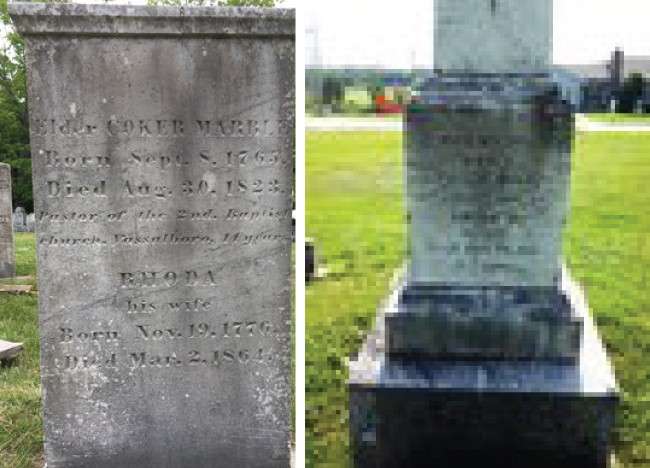
Grave marker for Elder Coker Marble Sr., left, and his wife, Rhoda, on right., at the Cross Hill Cemetery, in Vassalboro.
Vassalboro cemetery records show that Coker Marble Sr., named as Elder Coker Marble, and Rhoda are buried in Vassalboro’s Cross Hill cemetery, with the two youngest of their four daughters.
(Your writer also found on line a biography of a Massachusetts doctor named John Oliver Marble. The biography specifies that he was the son of John and Emeline [Prescott] Marble and the grandson of Rev. Coker Marble. Dr. Marble was born April 26, 1839, in Vassalboro. He graduated from Colby in 1863 and received his medical degree from Georgetown in 1868.)
Coker Marble Jr., married Marcia Lewis (March 19, 1806 – Dec. 17, 1881) on Aug. 31 or Oct. 20, 1824, in Whitefield. Between 1825 and 1853 Marcia bore seven daughters and three sons. The sons were named Arthur, Edwin and Henry.
From the birth and death dates, your writer concludes that it was Coker Marble Jr., who ran the Vassalboro singing school, probably beginning when he was in his early 30s. The genealogy lists two of his and Marcia’s children as born in Vassalboro, in 1837 and 1841, and two others in Hallowell, in 1839 and 1845.
The on-line site says the younger Coker Marble lived in Pittston in 1870 and Skowhegan in 1880; Marcia is listed in Pittston in 1870 and in Milburn in 1880 (Milburn might then have been part of Skowhegan). Both died in Bath (another site says Coker Marble died in either Bath or China) and are buried in Bath’s Maple Grove Cemetery.
Main sources
Davenport, Linda, Divine Song on the Northeast Frontier Maine’s Sacred Tunebooks, 1800-1830 (1996).
Edwards, George Thornton, Music and musicians of Maine: being a history of the progress of music in the territory which has come to be known as the State of Maine, from 1604 to 1928 (1970 reprint).
Howard, Millard, An Introduction to the Early History of Palermo, Maine (second edition, December 2015).
Kingsbury, Henry D., ed., Illustrated History of Kennebec County Maine 1625-1892 (1892).
North, James W. , The History of Augusta (1870).
Websites, miscellaneous.
Conor Mccarthy earns degree from University of Maryland Global Campus
/0 Comments/in School News, Vassalboro/by Website Editor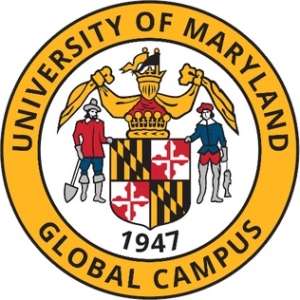 Conor Andrew Mccarthy, of Vassalboro, earned an associate of arts from University of Maryland Global Campus, in Adelphia, Maryland, in spring 2023.
Conor Andrew Mccarthy, of Vassalboro, earned an associate of arts from University of Maryland Global Campus, in Adelphia, Maryland, in spring 2023.LETTERS: Thanks to Karen
/0 Comments/in China, Letters to the Editor, Vassalboro/by Website Editor To the editor:
To the editor:
Dear Karen (Hatch),
The music, activities and dancing at the grange are something special. Cribbage at the town office gets folks together. Our library provides a myriad of opportunities for all ages. Activities at the Mill or school or in the parks are beginning to happen. A notable benefit is, it has gotten us all out of our covid clam shells and into the brighter world of Maine in the summer and looking out for your neighbors. Thank you for being the catalyst for many of the events described above. Your joyful endeavors are just dandy and most certainly getting us all out and about is good for promoting the fine community spirit that has been part of Vassalboro for some time.
We are very grateful for all you have accomplished.
Regards from Bernie and Jody Welch (Vassalboro grange master)
An amazing story of survival
/0 Comments/in Community, Critter Chatter, Vassalboro/by Jayne Winters
The fawn in the back of the SUV being delivered to the Duck Pond Wildlife Rehab Center. (contributed photo)
by Jayne Winters
As I slowed down to turn into the driveway at the Duck Pond Wildlife Rehab Center, I couldn’t help but notice the SUV ahead of me did likewise. I could never have imagined the story the driver soon shared with me and Don about the three-week-old fawn she had in the dog kennel in the back of her vehicle.
While in the car with her husband, a doe had unexpectedly crossed the road in front of them and they couldn’t avoid hitting her. Naturally upset and concerned, her husband got out of the vehicle to make sure the doe wasn’t suffering. She had died upon impact, but he was shocked to find she had expelled her fawn, still in its placenta. He went back to the car for his wife and together they delivered the baby, rubbing it down with a blanket and massaging its mouth to get the airway functioning. Its first breaths were drawn while being held by its human “parents.” What a gift, especially under such sad circumstances.
Although they were initially advised by IF&W to let nature take its course, they simply couldn’t leave it, knowing it wouldn’t survive. They brought the fawn home and made calls to several rehabbers, none of whom had room for a newborn (I couldn’t help but think of the Christmas story, with “no room at the inn.”). However, having grown up and currently living on a farm, Savannah was familiar with raising young animals, so she took on the care and feeding of the little guy. Looking at his size and behavior in the kennel, it was obvious she had done a great job. He was alert, with bright eyes and a beautiful coat. She provided Don with details of what she had fed him, how often, his level of activity and habits. In addition, she left food so that his diet wouldn’t be changed while in rehab. An expectant mother herself, it was apparent that her nurturing extended beyond her own family.
While I’m sure it was bittersweet to leave the fawn at Duck Pond, Savannah was able to observe him quickly bond with two younger fawns in the stall. They literally looked up to him, he was that much taller! All three were eventually taken to another rehabber where they will stay together until their release back into the wild. A happy ending to what began as a sad story.
Many critters continue to be transferred to other rehabbers who are generously providing assistance to help keep critter care at Duck Pond manageable. They are greatly appreciated! Please check the following web sites to see if there is a rehabber near you: https://www.mainevetmed.org/wildlife-rehabilitation or https://www.maine.gov/ifw/fish-wildlife/wildlife/living-with-wildlife/orphaned-injured-wildlife/index.html
– Donald Cote operates Duck Pond Wildlife Care Center, on Rte. 3, in Vassalboro. It is a nonprofit state permitted rehab facility which is supported by his own resources and outside donations. Mailing address: 1787 North Belfast Ave., Vassalboro ME 04989 TEL: (207) 445-4326. Please note the previous e-mail address is no longer monitored.
VASSALBORO: KWD only beneficiary of solar power development
/0 Comments/in News, Vassalboro/by Mary Grow by Mary Grow
by Mary Grow
Vassalboro planning board members had on their July 11 agenda four shoreland permit applications and a discussion of keeping phosphorus out of water bodies. They had in the audience two representatives of ReVison Energy to talk about a solar project that was not on the agenda.
In a short meeting, they learned one application had been withdrawn and one did not need their action; approved one permit; postponed another and the phosphorus discussion; and said Vassalboro’s new solar ordinance does not apply to ReVision’s project.
ReVision representatives Alexander Roberts-Pierel and Annalise Kukor were asking about the Kennebec Water District’s proposed solar development.
Roberts-Pierel said the project had received an interconnection permit from Central Maine Power Company just before Vassalboro’s local moratorium took effect in November 2022. The moratorium ended after voters at the June 2023 town meeting added commercial solar regulations to the town’s site review ordinance.
Roberts-Pierel said power generated by the KWD project will go into the grid, but it will be entirely credited against KWD’s usage. KWD will be “the sole beneficiary,” and no power will be sold to other entities.
In that case, planning board chairman Virginia Brackett said, the solar regulations do not apply. By the definition of “commercial solar energy system” in the ordinance, they apply only when the “primary purpose” is to sell power off-site.
Because of the area to be covered by the proposed solar panels, KWD will need an ordinary site review permit for the development. Roberts-Pierel said he would report to KWD officials and prepare an appropriate application.
The shoreland permit approved was for Stephen Hahn to enlarge the deck on his camp, at 5 Baker Road, on Webber Pond. The new deck will be slightly smaller than he originally requested, in order to meet ordinance requirements.
The postponed application was from Peter Tomasz, to enlarge a building, at 62 Three Mile Pond Road. Tomasz was not at the July 11 meeting, and board members reviewing the application found they had several questions for him.
His application was therefore postponed to the board’s August meeting.
Codes officer Robert Geaghan said the Town of Vassalboro does not need a permit from the planning board for proposed developments at Eagle Park, on Outlet Stream; the codes officer is authorized to act.
Town Manager Aaron Miller added that the town needs a state Department of Environmental Protection permit by rule for adding fill. He and Paul Mitnik (former codes officer and current planning board member) will take care of it.
The next regular Vassalboro planning board meeting night is Tuesday, Aug. 1.
Recreation dept. to see changes; Bog Road bridge replacement discussed
/0 Comments/in News, Vassalboro/by Mary Grow by Mary Grow
by Mary Grow
Vassalboro select board members’ July 13 topics covered the entire town, especially the northern half: continued discussion of the recreation program and the Vassalboro Sanitary District; a state Department of Transportation (MDOT) presentation on plans for a new bridge on Bog Road in 2025; a resident’s proposal for traffic control in East Vassalboro; and the board’s own meeting schedule through the end of November.
Some members of the current recreation committee and town recreation director Karen Hatch have had difficulty sorting out respective responsibilities. The committee in the past focused on youth sports; the town program Hatch directs is expanding to serve residents of all ages.
Town Manager Aaron Miller said he met with recreation committee members, talked with other residents and consulted the town’s attorney. On his recommendation, select board members voted unanimously to seek volunteers for an expanded recreation committee that will include individuals in charge of fundraising, baseball, basketball, soccer, softball, the snack shack at the town fields on Bog Road and senior programs and events.
Residents who would like to serve on the new recreation committee are invited to contact the town office. Appointments are to be made at the Aug. 17 select board meeting. Miller said the attorney advised him that the current sports commissioners may continue as usual in the interim.
After members are appointed to the expanded committee, Miller sees their first priority as revising committee bylaws to fit into the new town structure. Committee member Karen Howard reminded everyone that Vassalboro’s bylaws need to conform to the bylaws of the Augusta-based Dirigo League in which town sports teams play.
Select board chairman Chris French said reconciling the recreation committee bylaws with the town personnel policy should – and would – have been done soon after Hatch was hired, if board members had not been fully occupied with finding a new town manager and preparing for the 2023 town meeting and new fiscal year.
Discussion of Vassalboro Sanitary District (VSD) financial issues repeated concerns explained at the June 22 select board meeting: to cover its debts and current expenses, the district needs either to raise rates to levels some of its 200 customers say are higher than their annual tax bills, or to find other funding sources (see the June 29 issue of The Town Line, p. 2).
Miller said state Representative Richard Bradstreet had offered suggestions that VSD official Becky Goodrich said led to some financial help for some customers.
Part of the problem is an increase in the rate Winslow charges Vassalboro to send its sewage via Winslow to Waterville’s treatment plant. Select board members planned to request a meeting with Winslow officials. Miller offered to arrange it, and, if Winslow agreed, to host it.
Brian Nichols, a project manager in the MDOT bridge program, came to the July 13 select board meeting to ask permission to use town roads as a detour while the Meadow Brook bridge on Bog Road, between East Vassalboro and the Hussey Hill Road intersection, is replaced.
Nichols’ proposal is to close Bog Road and send traffic over Taber Hill and Gray roads. Before and after the detour, he said, MDOT and town representatives will inspect the roads; if the extra traffic does any damage, the state will pay to repair it.
At the end of the meeting, long after Nichols left, resident William Pullen pointed out that the sharp left (south) turn where Gray Road meets Taber Hill Road would be dangerous for big trucks going south. He recommended extending the detour north to Oak Grove Road, instead of using Gray Road.
Nichols would like an answer from the select board by September, when MDOT should have a final plan and be ready to seek bids. He expects construction in the summer of 2025, with Bog Road closed for about 45 days.
The current bridge was built in 1960 on 1911 abutments, Nichols said. It is no longer stable enough to be rebuilt one lane at a time, and there is no place to put a temporary bridge, leaving detouring traffic the only option.
East Vassalboro resident Raymond Adams proposed another traffic change: a four-way stop at the East Vassalboro four corners. Currently, drivers coming east off Bog Road and west off South Stanley Hill Road face stop signs; drivers on Main Street (Route 32) go through, mostly much faster than the 25-mile-an-hour speed limit, Adams said.
Ben Gidney, who also lives near the four corners, agreed speeding – and running the stop signs – are problems. But, he said, vehicles accelerating noisily away from the stop signs are another problem that would increase with two more signs.
Miller said he consulted with David Allen, Vassalboro resident and DOT regional engineer, who said if the town asked for additional stop signs or any other change, the department would evaluate the request.
Miller said Allen reported “one crash at the intersection within the last three years.” Gidney said Allen must count only serious accidents, as he has seen more than one.
After hearing other suggestions, like rumble strips, a blinking light or a portable sign recording drivers’ speeds, select board members decided to hold a public hearing at their Sept. 7 meeting.
North Vassalboro residents added that excessive speed is a problem in their village, too.
In other business July 13, board members:
- Authorized Miller to sign a contract with Delta Ambulance to serve Vassalboro residents;
- Agreed to set up an escrow account for receipts from sale of foreclosed properties;
- Appointed Peter Soule an alternate member of the town conservation commission, to serve until 2026; and
- Approved four permits for BYOB events.
Miller will follow up on resident Raymond Breton’s complaint about superfluous utility poles in North Vassalboro. At board chairman French’s suggestion, the manager will look into the cost of updating Vassalboro’s strategic plan, which was approved in June 2006.
Select board members agreed to consider at their Aug. 17 meeting questions for an opinion survey to be sent with tax bills.
After Aug. 17, they scheduled meetings for Sept. 7, Sept. 21, Oct. 5, Oct. 19, Nov. 2 and Nov. 16. On Nov. 30, instead of a third regular November meeting, they plan a workshop session to develop priorities for the rest of the fiscal year.
Interesting links
Here are some interesting links for you! Enjoy your stay :)Site Map
- Issue for July 3, 2025
- Issue for June 26, 2025
- Issue for June 19, 2025
- Issue for June 12, 2025
- Issue for June 5, 2025
- Issue for May 29, 2025
- Issue for May 22, 2025
- Issue for May 15, 2025
- Issue for May 8, 2025
- Issue for May 1, 2025
- Issue for April 24, 2025
- Issue for April 17, 2025
- Issue for April 10, 2025
- Issue for April 3, 2025
- Issue for March 27, 2025
- Issue for March 20, 2025
- Issue for March 13, 2025
- Issue for March 6, 2025
- Issue for February 27, 2025
- Issue for February 20, 2025
- Issue for February 13, 2025
- Issue for February 6, 2025
- Issue for January 30, 2025
- Issue for January 23, 2025
- Issue for January 16, 2025
- Issue for January 9, 2025
- Issue for January 2, 2025
- Sections
- Our Town’s Services
- Classifieds
- About Us
- Original Columnists
- Community Commentary
- The Best View
- Eric’s Tech Talk
- The Frugal Mainer
- Garden Works
- Give Us Your Best Shot!
- Growing Your Business
- INside the OUTside
- I’m Just Curious
- Maine Memories
- Mary Grow’s community reporting
- Messing About in the Maine Woods
- The Money Minute
- Pages in Time
- Review Potpourri
- Scores & Outdoors
- Small Space Gardening
- Student Writers’ Program
- Solon & Beyond
- Tim’s Tunes
- Veterans Corner
- Donate



